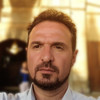It's not about drug use, it's about government corruption
Although the AKP is trying to make the office staff member Kürşat Ayvatoğlu’s recent cocaine controversy only about drug use, the problem extends to distorted power relations and government corruption. No matter how much the AKP staff tries to deny it, it is apparent that corruption and decay are no longer controllable. The Ayvatoğlu incident is just one example.
Although the ruling Justice and Development Party (AKP) office staff member Kürşat Ayvatoğlu is trying to make his recent cocaine controversy only about drug use, the problem extends to distorted power relations and government corruption.
Of course, there are all kinds of people within a political party. Even smaller parties may have the occasional incident. However, no matter how much the party staff tries to deny it, it is apparent that corruption and decay are no longer controllable. The Ayvatoğlu incident is just one example.
The nationalist and conservative grassroots of the AKP know that the party is a swamp of corruption. The future of the AKP depends on this cycle of extreme profits and the spiral of corruption. When corruption is over, there will be no profits to be distributed and no voters to be persuaded. Of course, this would exclude the social aid that the party is distributing. It is not possible to keep a segment of society dependent simply by distributing basic food items or coal via social aid. There must be a wheel of corruption and an axis of extreme profits.
It does not seem credible to say that this corruption issue started with the AKP or that there was a generation that worked and earned honestly in the early years of the Republic who were able to provide for themselves and their families. Corruption has, of course, grown, diversified, deepened, and prospered during the AKP era. But we cannot analyze the issues correctly while neglecting the fact that there has been serious corruption in our country since the founding of the Republic in the early 1920s.
Accounts from that time describe the deterioration of the one-party system, the erosion of values, and the corruption of bureaucrats. If we did not have a history of corruption and bribery, for example, if a former prime minister had not said, “my officer knows what he is doing,” would we be where we are now? Corruption has always existed, but it is more accurate to say that the AKP has made it more systematic.
However, the AKP’s biggest problem is not corruption, extravagance, or deterioration. Such qualities can exist within any party or social movement. However, if there is a will for change, corruption and extreme consumption can be solved. Parties must first acknowledge such wrongdoing and mistakes.
Have President Erdoğan and the AKP executives ever accepted any wrongdoing? No. Any group that does not accept its mistakes and constantly tries to cover up bad deeds, whether it is a party, a social movement or an organization, can never prosper or substantively reform.
The party has largely been taken over by what we can call the average Turkish electorate, who have previously facilitated the collapse of center-right political parties such as the ANAP, the DYP, and even the MHP.
Party executives consciously included this segment in the party so that the AKP would become a central political party in Turkey. We are simultaneously observing the existence of a segment that has always been corrupt. This segment is focused on its own interests. They use politics as a passage to financial gains and personal power. They may have been present since the foundation of the AKP, but they have become more reckless in their behavior and are adopting an increasingly corrupt lifestyle. Their courage comes from the deterioration of top executives.
However, the AKP’s fatal problem is that it has made those intellectuals and journalists close to them interdependent, both intellectually and financially. Such journalists and conservative ‘intellectuals’ do not criticize the erosion of values in the religious sector or the AKP.
Regarding such intellectuals, it is important to distinguish certain names from others: Columnist Abdurrahman Dilipak is an example of someone with a unique position.
Dilipak was openly critical in his columns and posts regarding the recent Ayvatoğlu incident. He did not choose to cover up, trivialize, camouflage, deny, or legitimize it. However, people like Dilipak cannot see that it is difficult to say anything profound about this issue without criticizing Turkey’s ‘piety,’ conservatism, nationalism, and tendencies toward fascism. Without putting such decades-long weaknesses on the dissection table, being moderate gets us nowhere
Criticisms of Islamism and conservatism would be incomplete without a deep questioning of power and governance. Perhaps the greatest weakness of such critics is that, even if they are not themselves sick, they cannot comprehend the diseased structure of the media outlets they work for.

